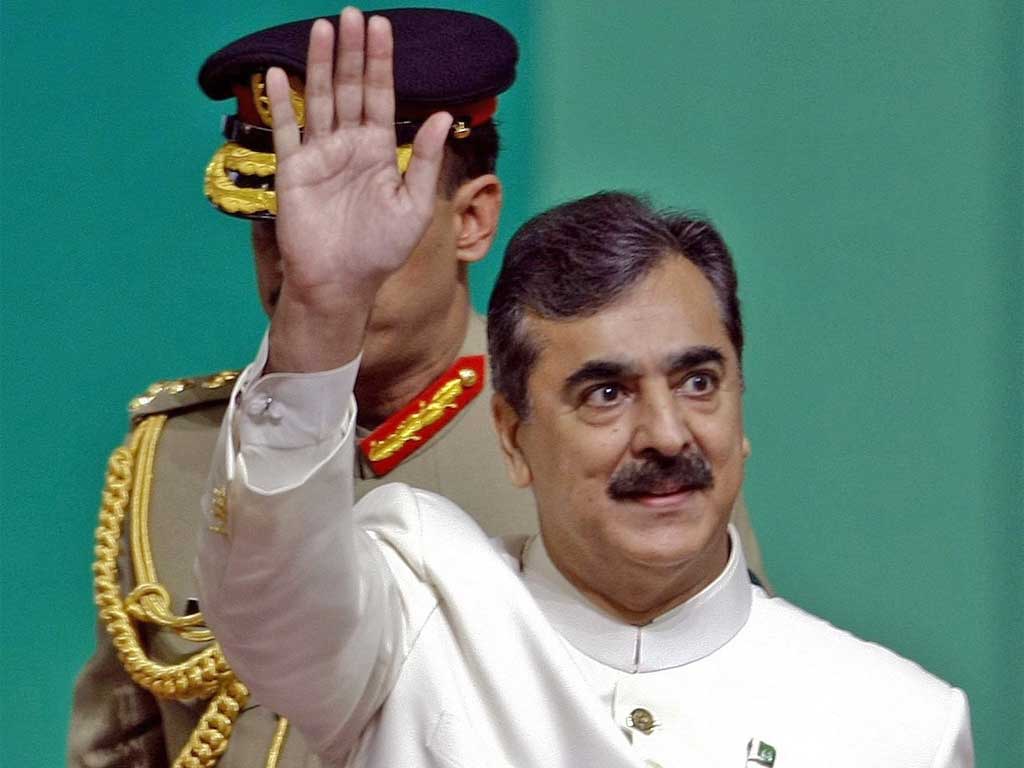Political crisis grips Pakistan after court disqualifies Prime Minister
Supreme Court rules Gilani ineligible for office due to conviction for contempt in April

Pakistan has been plunged into fresh turmoil and uncertainty after the country’s Supreme Court disqualified prime minister Yousaf Raza Gilani from office, with some analysts likening the move to a “judicial coup”.
In the latest confrontation between the ruling Pakistan Peoples Party (PPP) and an increasingly assertive judiciary, the court ruled that Mr Gilani’s conviction two months ago for contempt rendered him ineligible to hold onto his position. It even claimed the post of prime minister had been “vacant” since that April conviction.
“No appeal was filed [against the conviction] …therefore Syed Yousaf Raza Gilani stands disqualified as a member of the Majlis-e-Shoora [Parliament],” chief justice Iftikhar Chaudhry told the packed court room. According to Reuters, he added: “He has also ceased to be the prime minister of Pakistan ... the office of the prime minister stands vacant.”
The PPP, headed by president Asif Ali Zardari, was last night meeting with its coalition allies to decide its next move and a flurry of names – among them water and power minister Chaudhry Ahmed Mukhtar and textiles minister Makhdoom Shahabuddin – were mentioned as potential successors to Mr Gilani, the nation’s longest-serving prime minister. The PPP urged its supporters to remain calm and keep off the streets.
The party has previously pointed out that it has a sufficient majority in the parliament to elect a new premier should Mr Gilani be forced from office, and could therefore avoid a prolonged constitutional crisis. At a press conference, the information minister Qamar Zaman Kaira acknowledged that “technically” Mr Gilani was no longer Prime minister following the court’s decision and the election commission later announced it had notified him he was no longer a member of the national assembly. The cabinet may also have to be dissolved.
The upheaval will do little to help Pakistan as it continues to confront challenges on a number of fronts, including its difficult relationship with the US and debilitating power shortages that have pushed thousands of angry protesters onto the streets. Some areas of the country are suffering without power for up to 18 hours a day. Some analysts believe the turmoil could bring forward a general election, which has to be held before next spring.
“I don’t think the ordinary people of Pakistan are too worried about what has happened to Mr Gilani. I think they are more worried about the economic consequences of his government’s policies,” said Rasul Bakhsh Rais, a Lahore-based political analyst. “There’s rioting going on in the Punjab.”
The three-judge bench headed by Mr Chaudhry issued the ruling disqualifying Mr Gilani in response to petitions that had challenged a decision by the speaker of the national assembly, Fehmida Mirza, not to disqualify the premier following his conviction for contempt two months ago. The speaker is a member of PPP and opposition parties had been outraged by the decision.
But its true origins reach back to the end of 2009, when the court struck down an amnesty agreement introduced by former president Pervez Musharraf that benefited Mr Zardari and others. At the time, the government was ordered by the court to ask the authorities in Switzerland to reopen an old investigation into corruption allegations against Mr Zardari. Mr Gilani refused to do so, saying the president had immunity from prosecution as long as he remained in office. Mr Zardari has always dismissed the allegations as a politically motivated attack against him and his late wife, former prime minister Benazir Bhutto.
Mr Chaudhry, the chief justice who was returned to office after he was first ousted by Mr Musharraf, has considerable popularity in Pakistan because of his willingness to take on politicians often seen to be above the law. But his reputation has recently taken something of a battering after allegations earlier this month that his son had received up to £2m from a tycoon in what was an ultimately failed effort to determine the court’s decisions.
"Gilani's ouster had become inevitable given the clear view of the court earlier. However the manner in which he was disqualified by-passing the election commission was somewhat extraordinary,” said Raza Rumi, an analyst. “Given the recent attack on the [Supreme Court] in the shape of corruption charges on the chief justice's son, it seems that the court is on the offensive, keen to remove obstacles to its authority such as a defiant PM who was unwilling to quit or implement its orders. The role of the court is important in politics. However many in Pakistan think that its moral authority has weakened a bit in recent days. Thus the power is gravitating back to not so neutral umpire i.e. the military."
Subscribe to Independent Premium to bookmark this article
Want to bookmark your favourite articles and stories to read or reference later? Start your Independent Premium subscription today.

Join our commenting forum
Join thought-provoking conversations, follow other Independent readers and see their replies